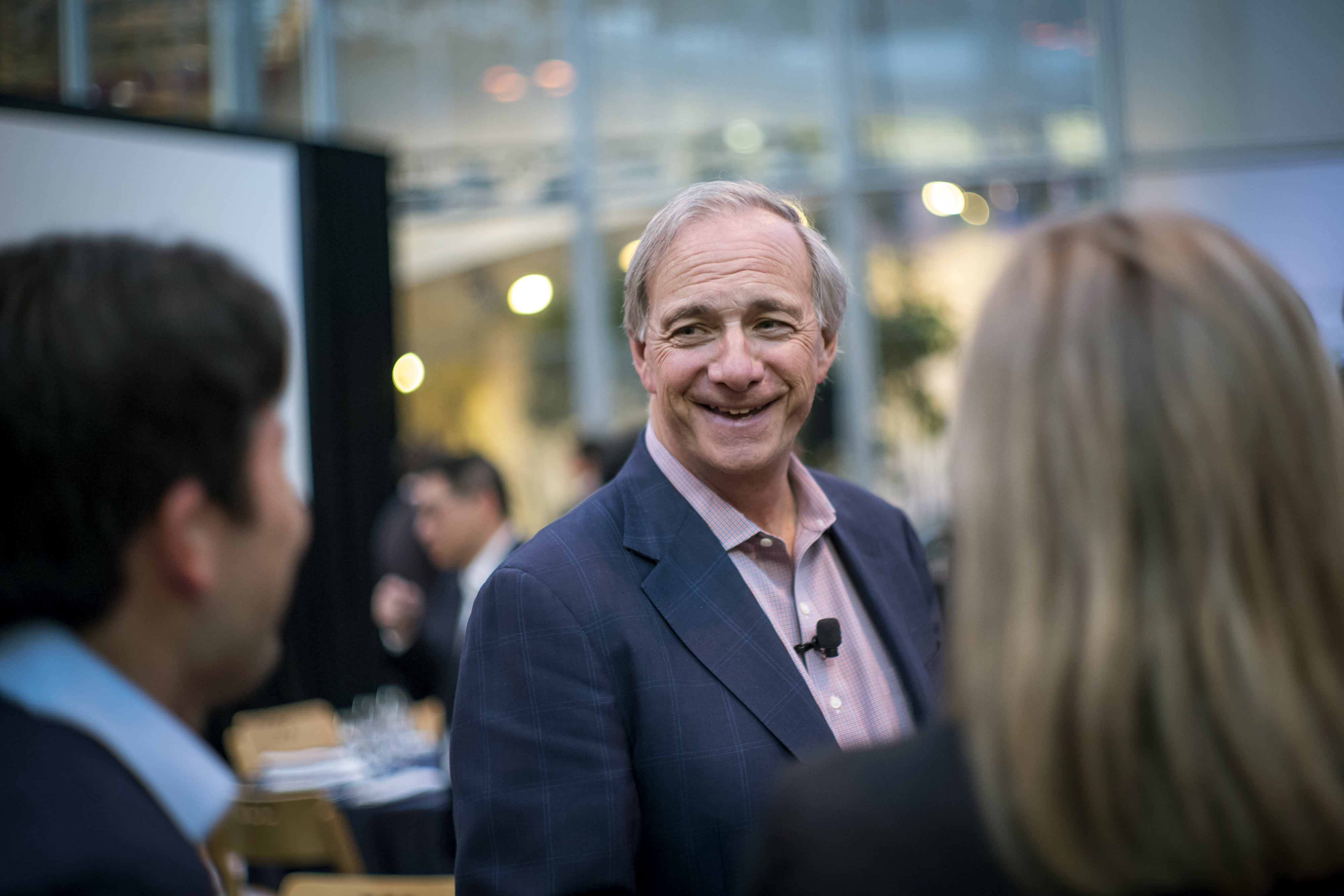
SINGAPORE — Many investors have cut their exposure to China in 2020. But one billionaire hedge fund manager has a strategy that begins with “balance.”
Ray Dalio told CNBC’s “Street Signs Asia” on Wednesday that the way to play the Chinese market is to first build a diversified portfolio.
“That means to achieve the right kind of balance of assets in China,” he said. “Our approach is, we call it all-weather approach, it’s a certain balance in which you achieve balance without lowering the expected return. From that, you want to make the tactical moves.”
Dalio said that the Chinese yuan could see greater usage outside China as the U.S. dollar and other major reserve currencies are hit by a weak economy. China’s interest rates are attractive, he said, and the development of its capital markets has helped make the exchange rate for the yuan stronger.
Ray Dalio, billionaire and founder of Bridgewater Associates.
David Paul Morri | Bloomberg | Getty Images
“You’ll see more of the internalization of the [yuan], and it’s a natural consequence because as the dollar and the major reserve currencies are having the challenges that we are talking about, some element of void will be there,” the co-chairman and co-chief investment officer of Bridgewater Associates said.
The onshore yuan strengthened against the U.S. dollar over the last six months, moving from levels above 7.00 to near 6.80 in recent weeks. Analysts have said the yuan’s strength was attributed to both a weakness in the greenback and China’s economic recovery from the coronavirus pandemic.
Dalio warned that the “tactical moves” he cited will shift over time.
“And of course those change, depending on the relative pricing of assets, classes and so on. But first … get the exposure, I believe to those markets and the currency too,” he said.
Major indexes in China are up year to date on the back of improving economic data and a slowdown in coronavirus cases.
India’s potential
Like China, Dalio said he believed India also has tremendous potential but it lags behind in the development of its capital markets.
“There’s much less liquidity in those markets, much less developed,” he said. Dalio explained that there are investment opportunities in the country in terms of many cutting edge technologies and entrepreneurship. But it is “tougher to invest in.”
“If there was a much greater development of the capital markets, more liquidity, more opening up of those markets, that would revitalize entrepreneurship,” he said, adding, “Being able to raise money in that way and circulate money in a more efficient way would revitalize the Indian economy.”
Unlike China, where the pandemic appears to be under control, India is struggling to reduce its number of infections and related deaths. At the moment, India is only behind the United States in terms of infection level, with more than 6.6 million people infected and over 103,000 deaths.
A nationwide lockdown between late-March to May crippled India’s growth trajectory and economists have said the road to sustainable recovery remains difficult. Still, the stock market has recovered from its March lows and remains relatively flat year-to-date. The rupee has also strengthened from levels near 77 to around the 73 mark against the dollar.




